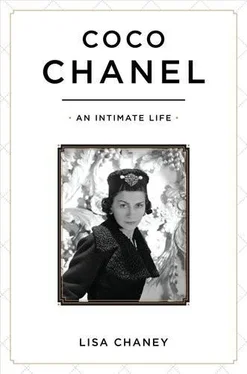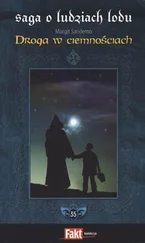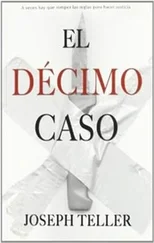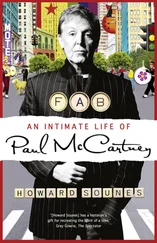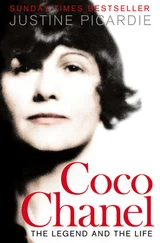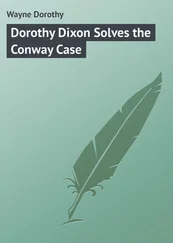Taking into consideration Gabrielle’s later confidences to Morand about her relationship with Arthur, Morand’s description of Lewis sometimes being unsettled by his mistress Irène’s drive and self-reliance seems understandable:
He wondered how she could manage to be so self-sufficient. She was never late, received visitors, wrote notes… and it never looked like it cost her anything. Irène’s desk was always clean, tidied up at the end of each morning… Irène left nothing to chance; she used everything. 7
For all Arthur’s energetic open-mindedness and forward thinking, believing a thing and acting upon it with any consistency are all too often different. And living with a New Woman was no doubt far harder than writing about one. In practice, Gabrielle’s equality may sometimes have been too challenging.
In her post — Second World War conversations with Paul Morand, she would quote Arthur’s advice to her: “Remember that you’re a woman,” and would add, “All too often I forgot that.” 8Arthur’s plea was that Gabrielle be less driven and less cerebral. And Morand has his heroine, Irène, say to Lewis, “Giving up working? You saw, I tried, I cannot remain idle… I am an island… something simple, isolated, where you cannot live… Can we go on living like this? It will tear us apart.” 9Although concealing any vulnerability she might feel, Gabrielle had also blossomed and was luxuriating in her new power. Arthur’s words urging her to remember she was a woman would, therefore, have little effect upon her progress. Arthur’s own progress, however, was now to take an unexpected turn. His affairs with other women did not usually unsettle his emotions, but he was about to become absorbed by someone who never forgot for a moment that she was a woman.
The Honorable Diana Wyndham (née Lister) was the youngest daughter of Thomas Lister, 4th Baron Ribblesdale, who so perfectly exemplified the Edwardian aristocrat in his portrait by John Singer Sargent. Ribblesdale was a soldier, landowner and courtier, and his impenetrably nonchalant style was reflected in his unmistakable hauteur. This was born of confidence in a world that had in fact been under threat for some time. The agrarian wealth of the Ribblesdales and their kind had been undermined by the industrial riches of a new and metropolitan aristocracy, which included families such as Arthur Capel’s. In turn, this metropolitan aristocracy would soon open up its ranks to an even newer variant, in the person of Gabrielle Chanel.
The children of the traditional upper classes would be the last to grow up in the old world. And many of the generation now being slaughtered in the war appreciated, however incoherently, that great change was in the air. To give a minor example, Lord Ribblesdale’s privileged daughter, Diana Wyndham, was a volunteer ambulance driver, close to the front lines of battle.
Diana was a tall, slim, blue-eyed girl whose delicate candor was matched by what someone who knew her well described recently as “a kind of naiveté. She was a very sweet person; most feminine until her dying day.” 10Great loss had revealed early Diana’s self-possession. Her mother had died when Diana was thirteen, then she was widowed in the first month of the war — only seventeen months after her marriage to the Honerable Percy Wyndham — and, by 1915, she had also lost both her brothers.
So unlike Gabrielle, this young woman, with her uncomplicated femininity, brought out the gallant in Arthur Capel, and he had soon visited her near the front. Any discomfort Arthur felt at Gabrielle’s increasing success and independence must have made the delightful young Englishwoman appear all the more seductive.
Arthur’s attraction to Diana Wyndham has characteristically been portrayed as one generated by social ambition alone: his “new” money in union with tradition. The one thing Arthur, or his mistress Gabrielle, could never achieve was Diana Wyndham’s noble heritage. But in Arthur’s long-hidden and recently discovered letters to Diana 11we see that both his sincerity of feeling and his transparency about his doubts are considerably more subtle than pure ambition. In that period of great flux, Arthur longed, like so many others, for some kind of certainty. However obscurely, he saw it in the rootedness Diana and her well-established family appeared to represent.
If, by chance, Diana hadn’t heard of Arthur Capel before they met, she would soon have got wind of his long-standing affair with the ultrafashion-able Coco Chanel. Arthur didn’t hide from Diana that, at thirty-five, he sometimes felt himself world-weary. Yet while he confessed to her that she had reawakened his dormant heart and he no longer wished to stray, a strand of lingering doubt is evident in these letters. He writes:
I re-read your letters in which you say things that are very true — it is a bore to love too many people. It has in fact been the principal bore of my life, in fact poisoned the butterfly’s honey, but now I don’t long any more to explore new countries, unless it be to see the setting sun in your blue eyes. 12
And then, almost in spite of himself, Arthur displays that note of ambivalence: “Perhaps this is only a mood & will get stale, perhaps it won’t.” 13Other letters reveal not only Arthur’s but also Diana’s doubts, and were to become typical of their affair. Above all, for months, Arthur was endlessly torn between Diana and Gabrielle.
He knew Gabrielle was one of the most unusual women he would ever meet. But moving in the most urbane of French circles, Arthur was captivated by Diana’s simplicity. And she, while herself moving easily in London society, where her friends were among the most polished in England, felt more comfortable on an English country estate than mixing with the archsophisticates of Paris. She was wary of the great differences between her own life and Arthur’s, 14and her uncertainty was confirmed by friends’ telling her that Arthur was sometimes seen with Gabrielle when she, Diana, was not in Paris. If our knowledge of Gabrielle’s feelings during this period is limited, we do know that Arthur and Diana’s mutual doubts led them several times to call off their liaison. In one particularly poignant letter, he tells her:
I stepped into hell the morning we parted… & only just kept my head. Yesterday morning the reaction came. I saw my life as it used to be before I met you & resolved to take up its threads again and carry out its obligations… Fate as usual stepped in and I put my resolution into execution yesterday. Then for 24 hours I found peace at last from all these perishing doubts & hesitations. This morning comes your letter one day too late. It would be long & useless to explain but the position is that now I cannot marry.
… feel quite sure that we could not be happy with so little confidence in ourselves… Put the whole thing out of your mind for the time being, let me work out my salvation (or the other thing) & I shall go on loving you just the same, although I know now that it is no use trying to build our house upon sand.
Au revoir mon petit Buggins… I want no more of it…
Boy 15
While Arthur had returned to Gabrielle and clearly felt unable to renege on whatever promises he had made her, this sad episode was not to be the conclusion of his affair with Diana, and they would return yet again to their seesawing indecision. In the letter perhaps most revealing of Arthur’s philosophy, he wrote:
I’ve slid down every cursed slope and the hills. I hate the main road & the crowd. The world I know is of my own making, the other makes me sick. Their morals, their convictions, their ambitions mean nothing to me. Fancy, sympathy & illusion have ever been my bed mates & I would never change them for Consideration, Position or Power, except perhaps the Position where two make one — blush my sunbeam…
Читать дальше
